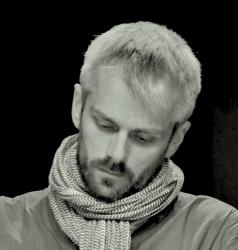
The most dramatic growth of child poverty in rich countries, according to UNICEF
Poverty among children has increased more in Iceland than anywhere else in recent years, according to a new report from UNICEF, “Children of the Recession: the impact of the economic crisis on child well-being in rich countries”. Child poverty in Iceland almost tripled from 2008 to 2012.
The poverty rate among children in migrant households increased twice as much as among non-migrant households. A disproportionate burden also fell on children in households of lone parents, and workless households. The report says that in many cases, “average comparisons hide the scale of the situation.”
Child poverty tripled, poverty and deprivation quadrupled
41 countries were analysed, thereof 31 in Europe. The impact of the recession was felt in more than half of the countries. In 23 of the countries, the income poverty of children incresed from 2008 to 2012, but nowhere as extremely as in Iceland. According to the report, child poverty in Iceland rose from 11.2%to 31.6% of the country’s children.
At 0.6 percent, Iceland measures relatively low in “severe child material deprivation”, compared with many other countries. Nonetheless, the number did rise and severe deprivation increased in the period. The combined figure of children who are “income poor and severely deprived” quadrupled during those four years, from 0.6%, to 2.6% of all children.
The number of households with children unable to afford a meal with meat, chicken, fish or a vegetale equivalent every second day more than doubled, reaching 6 percent in 2012.
Fiscal adjustments and budget cuts
Oher countries where child poverty increased in the period, though not as extremely, were Greece, Italy, Spain, Croatia, the Baltic states, Ireland and Luxembourg. Of those, the three Baltic countries, as well as Iceland, were supported by IMF/EU/European Central Bank programmes, demanding fiscal adjustments. Luxembourg, Estonia, Lithuania and Iceland were also among the five countries who made the biggest cuts in public expenditure in the period.
In contrast, countries such as Chile, Finland, Norway, Poland and Slovakia, are said to have “found some way to cope with the worst consequences of the recession and saw their child poverty numbers reduced.”
The period assessed saw median income in Iceland decrease by around 25%. The report also measures the decrease in household income in terms of lost years of potential progress. According to the report, families in Iceland lost the equivalent of nine years of income progress, comparable to Ireland, Spain, Luxembourg, Italy, Hungary and Portugal. Families in Greece lost fourteen years on the same scale, which did, however, not lead to the same increase in child poverty as in Iceland. This whole development, the authors of the report mark as “the great leap backward”.
Progressive taxation improved situation 2012-2013
The report aims to “assess the absolute change in child poverty over time” rather than changes in relative poverty and wealth distribution. In 28 of the 31 European countries included in the report, the poverty rate increased more rapidly, or decreased more slowly, among youth than the elderly. Unlike Croatia and Greece, where access to work, education and training declined among youth, in Iceland, these circumstances seemed to improve somewhat in the period.
The report says that by replacing a flat tax with a progressive tax structure, to improve social protection, such as by increasing child benefits, between 2012 and 2013, Iceland saw some reduction in inequality and child poverty.
Buy subscriptions, t-shirts and more from our shop right here!


















